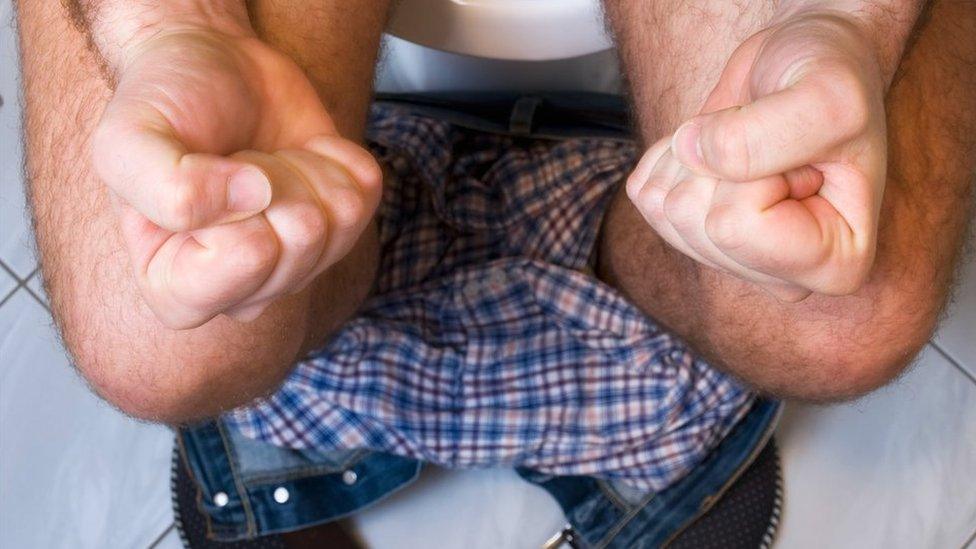#PooWatch: How your body reacts to not pooing for 20 days
- Published

A man suspected of hiding drugs inside his body is refusing to do a poo for Essex Police.
His self-imposed toilet strike has now passed 20 days and officers are getting fed up with the lack of movement in the case.
They say he's under constant watch and undergoing daily medical tests.
Newsbeat's been finding out what holding on for so long does to your insides and, perhaps surprisingly, it turns out it might not be that bad.
Allow X content?
This article contains content provided by X. We ask for your permission before anything is loaded, as they may be using cookies and other technologies. You may want to read X’s cookie policy, external and privacy policy, external before accepting. To view this content choose ‘accept and continue’.
"There's only so long you can hang on," says Trish Macnair, from the Primary Care Society for Gastroenterology.
She points out the gut moves by itself - so willpower won't be enough to keep things in forever. You can't control it.
"Ultimately, things will move through the bowel and it'll empty itself. Most people have been there," says Trish.
The longer you avoid going to the toilet, the more uncomfortable it's going to get.
And detectives are clearly prepared to play the waiting game.
Allow X content?
This article contains content provided by X. We ask for your permission before anything is loaded, as they may be using cookies and other technologies. You may want to read X’s cookie policy, external and privacy policy, external before accepting. To view this content choose ‘accept and continue’.
"The suspect will feel his bowel moving, trying to empty. He'll be holding his sphincter tight," adds Trish.
Officers say the man has also been refusing to eat, which presumably makes it easier to resist the call of nature.
But, even that won't work.
"Even if you're not eating, the bowel will still move. That's because only about a third of what you find in faeces is food debris," explains Trish.
"A lot of it is dead, friendly bacteria and the lining of the bowel which is constantly shedding, like skin. Plus, lots of fluid."

Not eating won't help the suspect
But apart from the obvious discomfort, can you do serious harm to yourself?
In cases like this, it's unlikely.
"This is an acute situation, not chronic," says Trish.
"You won't get a devastating build up of toxins that can poison the body in such a short space of time.
"You're just going to get a lot of uncomfortable stretching of intestinal tubes."
Trish says there is a small risk of the bowel swelling and bursting - but in a young, healthy person, you'd expect the bowel to empty itself before that happened.
As Trish says: "I'm amazed he's held on for so long. It's only a matter of time."
Listen to Newsbeat live at 12:45 and 17:45 every weekday on BBC Radio 1 and 1Xtra - if you miss us you can listen back here